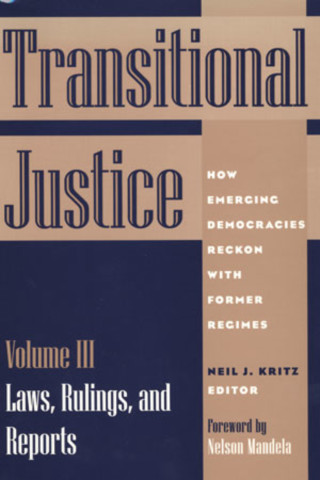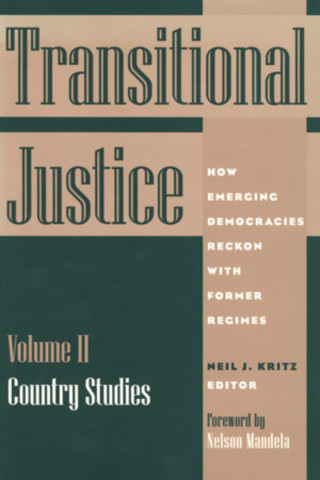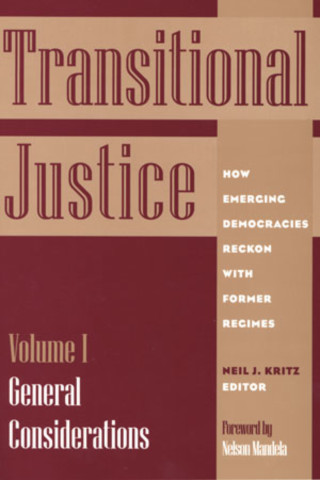Neil J. Kritz
Neil J. Kritz is the Institute's senior scholar in residence. He focuses on analyzing and advising on efforts to strengthen the Palestinian Justice system, having long led USIP's work on the topic, and on the Palestinian-Israeli conflict more broadly. Kritz also serves as rule of law/justice sector adviser in the Office of the Quartet Representative, dividing his time between USIP in Washington and the Quartet office in Jerusalem. He advises the Quartet, Palestinian officials, and international donors on efforts to strengthen the Palestinian justice system, and works closely with Palestinian and Israeli officials to facilitate cooperation in the justice sector.
Beginning in 1999, he guided a project on Palestinian-Israeli legal dialogue and cooperation initiated at the request of the two respective Ministers of Justice. He organized a series of joint legal seminars, co-sponsored by the Government of Israel, the Palestinian Authority, and USIP, that brought together some 150 members of the two legal communities to address practical issues affecting day-to-day interaction between Palestinians and Israelis. In 2008 and 2009, he served as an expert adviser on Palestinian justice system issues to the U.S. special envoy for Middle East regional security.
From 1991 to 2009, Kritz directed USIP’s Rule of Law Center of Innovation, developing Institute projects and providing policy guidance on such topics as war crimes and transitional justice, constitution-making, model codes and law reform, customary systems of justice, and the development of tools and strategies for rule of law assistance to countries at risk or emerging from violent conflict. Kritz conducts ongoing research, writing and consultation on the question of how societies deal with a legacy of past abuses. He has provided advice and organized conferences on questions of war crimes and mass abuses in Bosnia and Herzegovina, Cambodia, Guatemala, Indonesia, Rwanda, Sierra Leone, South Africa, and Uganda. In 2001, he served on a U.N. Experts Committee on the relationship between the Truth and Reconciliation Commission and Special Court for Sierra Leone. At the request of the leadership of the Bosnian parliament, he was the facilitator and expert resource in 2005 and 2006 for an eight-party working group to draft legislation establishing a truth commission. He organized early consultations on the administration of justice in Afghanistan, providing input that was adopted in the December 2001 Bonn Agreement on governance of the country. He assisted in the constitutional development process in Iraq from 2003 to 2008.
From 1990 to 1991, at the request of the Russian Constitutional Commission, Kritz coordinated two expert reviews of the draft Russian constitution. At the request of the U.S. Department of Defense, Kritz prepared a curriculum on international law and the promotion of democracy for use in training U.S. and foreign military officials.
Before coming to the Institute, Kritz served as special assistant to the chairman at the Administrative Conference of the United States. He holds a juris doctor from American University’s Washington College of Law.
Author's Books
Includes over 100 laws, regulations and decrees, constitutional provisions, judicial decisions, reports of official, commissions of inquiry, and treaty excerpts from 28 countries and from international organizations.
Examines more than 20 transitions from World War II to the present, including the denazification programs of the 1950s, democratic transformations in southern Europe in the mid '70s and Latin America in the '80s, and decommunization efforts in the '90s.
Assembles a rich variety of legal, political, and philosophical perspectives on how societies can deal with the legacy of repression.



